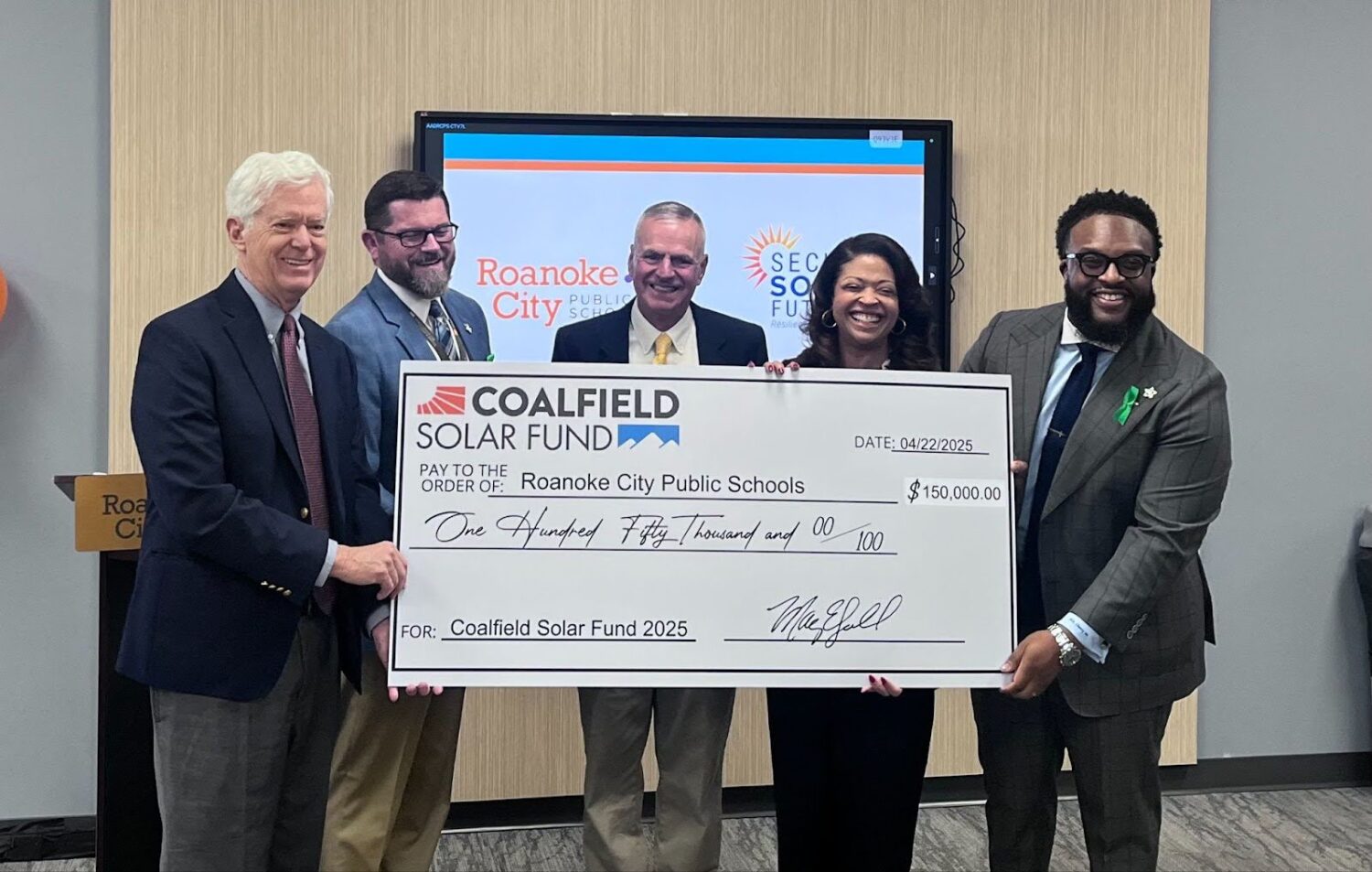|
|
|
Happy Friday!
April 25, 2025
|
|
|
|
This week, a new episode of the America First Energy Podcast went live! Skyler Zunk is joined by newly appointed America First Energy Project, Louisiana Executive Director, Jeff Arnold down in New Orleans. Jeff shares his experience with public service, his thoughts on opportunities for generation across the state and some news of a huge investment coming to LA.
|
 |
|
|
|
Listen on Spotify or view the podcast through YouTube, and for any inquiries regarding the podcast, you can contact America First Energy Podcast Producer Kayla Ventura at kayla@energyrightus.org.
|
|
|
|
|
|
Investing in the Future of the Renewable Energy Workforce
|
 |
|
|
|
Solar and renewable energy projects are opening new doors for hands-on learning and career exploration—especially for students interested in the fast-evolving energy field. A recent example is the partnership between UVA engineering students and Dominion Energy. As part of their senior Capstone course, students toured Dominion’s first solar installation on a closed landfill and helped design a project tailored to the site’s unique terrain. The experience offered a practical window into real-world solar challenges and reinforced how clean energy development can serve as a powerful teaching tool in engineering education.
In Roanoke, a similar blend of education and innovation is taking shape. Thanks to a $150,000 investment from the Coalfield Solar Fund, Roanoke City Public Schools are expanding their rooftop solar program while incorporating student learning opportunities into the process. The initiative will not only lower energy costs for the district but also give students early exposure to solar technology and potential career paths. By transforming school rooftops into live learning labs, Roanoke is demonstrating how energy infrastructure can simultaneously serve academic and operational goals.
These examples reflect a broader movement in Virginia and beyond: preparing the next generation of clean energy workers by embedding educational opportunities directly into the projects shaping their communities. As demand for skilled workers grows, partnerships between schools, utilities, and developers will be key to bridging workforce gaps and ensuring students are equipped to lead in a changing energy landscape.
|
|
|
|
|
|
|
|
|
|
|
|
Halifax Is Quietly Leading Virginia’s Energy Evolution
|
|
|
|
|
Halifax County’s Planning Commission this week advanced two more solar projects—another 140 MW of clean energy capacity that’s likely to win full board approval. For most communities, this would be a major policy shift. In Halifax, it’s simply the latest in a string of energy decisions that reflect a broader truth: this county has emerged as a bellwether for how Virginia’s energy landscape is changing—and who is shaping it.
Halifax stands out not simply for the scale of solar permitted—over 800 MW—but for how that development builds on a region with a rich energy history. From the 900 MW Clover coal station to the NOVEC biomass facility; here, legacy infrastructure hasn’t been erased, it’s being complemented by new development. Few counties in Virginia have embraced such an “all-of-the-above” strategy so effectively. Even more importantly, they’ve done it through deliberate planning, local buy-in, and strong governance—without state mandates or top-down pressure.
As more counties wrestle with land use caps, siting fatigue, or concerns over grid strain, Halifax offers a different model: lead with process, treat energy as a long-term asset, and trust that the economic upside will follow. With each project, the tax base grows, infrastructure improves, and a new generation of Virginians sees firsthand how energy policy isn’t just about megawatts—it’s about opportunity, resilience, and local leadership.
|
|
|
|
|
|
|
|
|
|
|
|
This week our team went to
Botetourt, Henry, Lunenburg, Mecklenburg, Roanoke City, Southampton, and Wise Counties!
|
|
|
|
|
|
|
 |
|
Roanoke City Public Schools Administrative Building
|
|
|
|
Ben Wilson of the Energy Right team visited Roanoke City this week where a public viewing of the Administrative building was taking place. The recent partnership between Roanoke City and Secure Solar Futures is the beginning of an expected $46 million savings over the life of the project, allowing the school and county to continue to invest while giving the public (and students) an opportunity to see firsthand the effects of clean energy done right.
|
|
|
|
|
|
|
|
Planning commission green lights two solar project requests
Miranda Baines
|
|
Halifax County’s Planning Commission has advanced two new solar projects—one 80 MW and the other 97 MW—following unanimous votes in favor of both special use permit requests. The approvals come with detailed conditions addressing setbacks, buffers, and decommissioning.
The projects, proposed by Apex Clean Energy and Cypress Creek Renewables, reflect continued interest in siting large-scale clean energy infrastructure in Virginia’s Southern region which continues to see more counties adopting energy-forward policies.
|
|
|
|
|
|
|
|
|
|
NEXT WEEK
We’ll be going to Surry, Southampton, and more!
|
|
|
|
|
|
|
|
|
|
“A site used to store garbage will soon become a first-of-its-kind solar project in Albemarle County.
Ivy Landfill has been closed for decades, but now, through the installation of 7,200 solar panels, it’s getting a second chance to serve the community.
The planned three-megawatt solar facility in Ivy will be Dominion Energy’s first on a landfill and will generate enough energy to power as many as 750 houses…”
|
|
|
|
|
|
|

